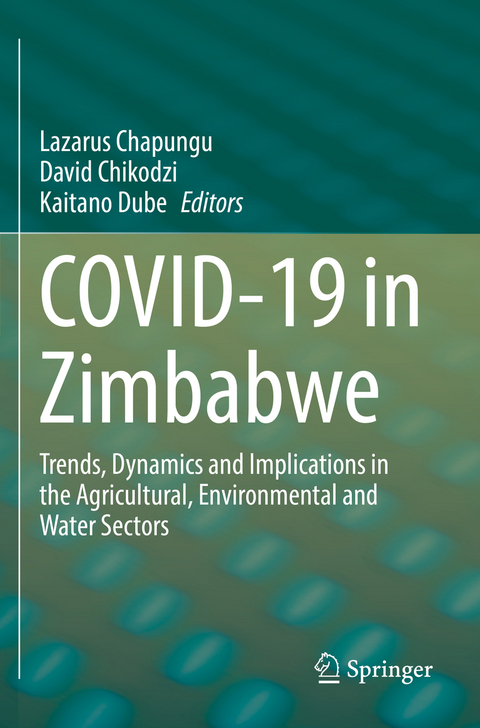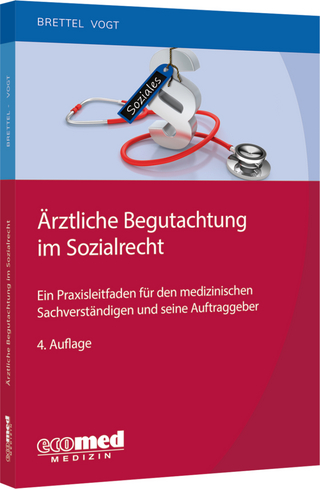
COVID-19 in Zimbabwe
Springer International Publishing (Verlag)
978-3-031-21474-5 (ISBN)
Lazarus Chapungu (Editor in Chief) researches on contemporary environmental issues, climate change, tourism, sustainable development and biodiversity management. He is currently a postdoctoral research fellow at the University of South Africa. He has worked as a senior lecturer and research chair in the Department of Physics, Geography and Environmental Science at Great Zimbabwe University. He served as a chapter scientist, contributing author and glossary editor in the 6th Assessment Report (AR6) of the Intergovernmental Panel on Climate Change, Working Group III Chapter 2. Lazarus holds the portfolio of Vice Chair of the programs committee of the board of directors at the Zimbabwe Council of Churches (ZCC), a non-governmental organization seeking to build community resilience to climate change and enable recovery from man-made and natural disasters. His qualifications include a PhD in Environmental Science, a Master's degree in Environmental Policy and Planning, a professional diploma in Applied Monitoring and Evaluation and a program certificate in project management.
David Chikodzi (Co-Editor) has widely published on contemporary environmental issues, water, climate change, tourism, sustainable development and ecological systems. He is a Post-doctoral research fellow in the Exxaro Chair in Climate Change and Sustainable Transitions at the University of South Africa. He holds a PhD in Geography and Environment Science from the University of the Western Cape (South Africa), Masters' degree in Environmental Policy and Planning, as well as a Bachelor of Arts (Honours) Degree in Geography from the University of Zimbabwe (Zimbabwe).
Kaitano Dube (Co-Editor) is an Associate Professor of Tourism Geography at Vaal University of Technology. He is a National Research of Foundation Y2 rated researcher who has researched and widely published (books and journal articles) on climate change, tourism, aviation, COVID-19 and sustainability. He is currently an editor of Tourism Geographies and Associate Editor of Frontiers in Sustainable Tourism. He holds a PhD in Environmental Management from the University of South Africa.
Chapter1. COVID-19 and its Implications for agriculture, environment, and water sectors.- Chapter2. COVID-19 plus: Addressing food security (SDG 2) and malnutrition within a web of disasters in the SADC region.- Chapter3. COVID-19 IN ZIMBABWE: IMPLICATIONS ON THE COMMERCIAL AGRICULTURAL SECTOR.- Chapter4. Strengthening local food systems in the context of COVID-19 pandemic: Lessons from Zimbabwe.- Chapter5. Contributions of small grains grown in Zimbabwe's dryland regions in boosting immunity and combating COVID-19.- Chapter6. The determinants of positive food procurement practices in COVID-19 affected communities: A cross sectional study conducted in Chiredzi Zimbabwe.- Chapter7. Understanding the dimensions of resilience for food and nutrition security among the informal traders during the COVID-19 pandemic in Zimbabwe.- Chapter8. COVID-19 and agricultural entrepreneurship in Zimbabwean townships: A systematic literature review.- Chapter9. Humanistic effects of COVID-19 pandemic on the informal sector in Zimbabwe.- Chapter10. The resilience of the small-scale commercial fishing sector to impacts of COVID-19 in Zimbabwe.- Chapter11. COVID-19 and the horticultural sector: Dynamics and implications for vendors and traders in the City of Masvingo, Zimbabwe.- Chapter12. Coping strategies and Livelihood Sustainability for Rural Women in the face of COVID-19: The case of Mutoko district, Zimbabwe.- Chapter13. Trends and dynamics of COVID-19 in Zimbabwe: Implications on Selected Sustainable Development Goals.- Chapter14. COVID-19's impacts on cities: insights on the provision of safe water, sanitation and waste management in Zimbabwe.- Chapter15. The paradox of 'water is life' in a water rationed city during the COVID-19 pandemic.- Chapter16. A CIPP-TOWS evaluation of blended learning for the Sciences and Mathematics during COVID-19: The case of Great Zimbabwe University.- Chapter17. Fake news, social media and the COVID-19 pandemic: The Zimbabwean experience.- Chapter18.COVID-19 infodemic and misinformation: A global review and implications for Zimbabwe.- Chapter19. Conclusions and Policy Recommendations: The Emerging COVID-19 Trends, Dynamics and Implications.
| Erscheinungsdatum | 04.01.2024 |
|---|---|
| Zusatzinfo | XIX, 315 p. 59 illus., 53 illus. in color. |
| Verlagsort | Cham |
| Sprache | englisch |
| Maße | 155 x 235 mm |
| Gewicht | 510 g |
| Themenwelt | Medizin / Pharmazie ► Medizinische Fachgebiete ► Arbeits- / Sozial- / Umweltmedizin |
| Naturwissenschaften ► Biologie ► Ökologie / Naturschutz | |
| Naturwissenschaften ► Geowissenschaften | |
| Sozialwissenschaften ► Politik / Verwaltung | |
| Weitere Fachgebiete ► Land- / Forstwirtschaft / Fischerei | |
| Schlagworte | COVID-19 and Agenda 2030 • COVID-19 and the SDGs • Cross-sector solutions • Impacts of COVID-19 • Southern Africa |
| ISBN-10 | 3-031-21474-9 / 3031214749 |
| ISBN-13 | 978-3-031-21474-5 / 9783031214745 |
| Zustand | Neuware |
| Informationen gemäß Produktsicherheitsverordnung (GPSR) | |
| Haben Sie eine Frage zum Produkt? |
aus dem Bereich


